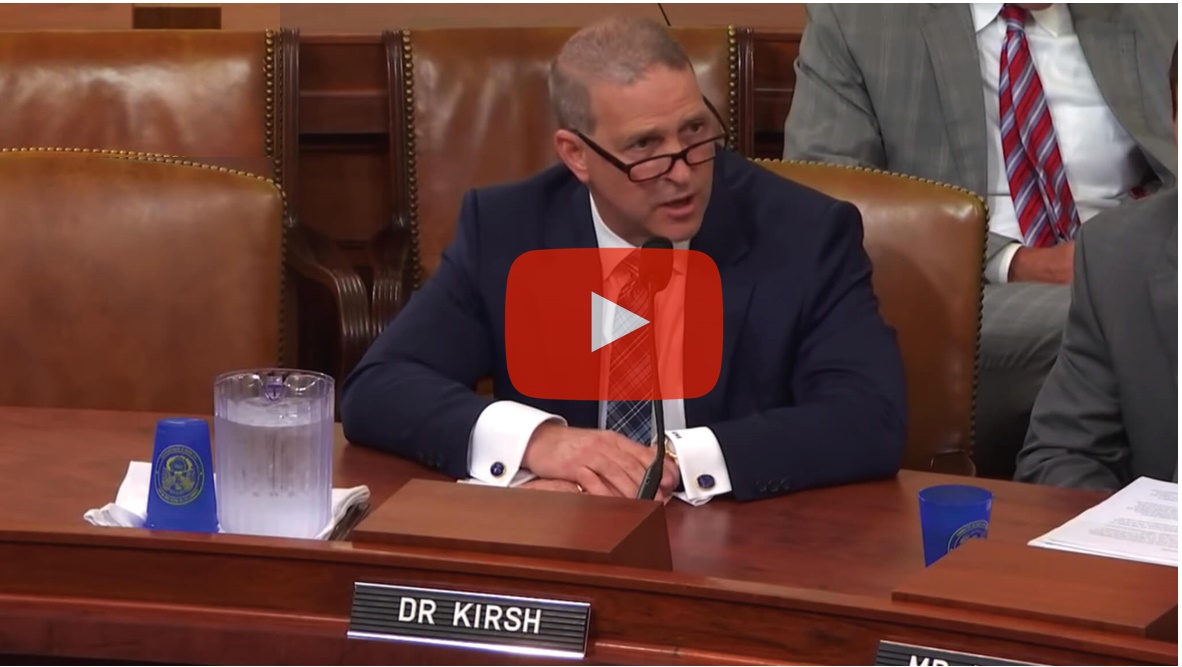LUGPA to Testify at Stark Law Hearing in Support of ModernizationWASHINGTON, DC, July 17, 2018 – Appearing today at a hearing of the United States House of Representatives’ Ways and Means Committee entitled, “Modernizing Stark Law to Ensure the Successful Transition from Volume to Value in the Medicare Program,” LUGPA’s Past President and Advanced Payment Model Task Force Chair, Gary Kirsh, MD, testified on the need to overhaul the decades-old Stark Law. As the voice for urologists in independent practice, LUGPA remains a longtime advocate for updating Stark Law, which presents numerous challenges to independent physicians and continues to be a barrier to the transition to value-based care models.
Today’s hearing comes on the heels of a recent call for public comments by the Centers for Medicare & Medicaid Services (CMS) on the future of Stark. “Stark Law must be modernized to allow for the creation of innovative delivery systems that increase care coordination across provider groups, and serve to improve outcomes and decrease cost,” said Dr. Kirsh, who is also president of the Urology Group in Cincinnati, OH. “Today, only five percent of U.S. physicians are even participating in alternative payment models (APMs), with very few in the pipeline. This is because organizations wishing to engage in APM development find themselves in a Catch-22: they cannot test an APM in the real world without financial waivers to Stark and anti-kickback laws, yet these waivers cannot be granted unless there is an approved APM. Congress needs to step in and correct this without delay.” Stark Law represents a barrier to the development and adoption of APMs in that it explicitly prohibits remuneration of physicians who receive revenue from designated health services (DHS) based on the “volume or value” of their referrals to these services. While this makes sense in fee-for-service medicine, it is not relevant in APMs, under which practices accept risk, and financial exposure to Medicare is limited. “How can we move to value-based care if practices are explicitly prohibited from paying their physicians based on value?” Dr. Kirsh said. Such outdated thinking hampers practices from incentivizing physicians to adhere to treatment pathways and agreed-upon clinical guidelines that improve patient outcomes and promote efficient use of healthcare resources in the context of an APM. Eliminating the “volume or value” from Stark prohibitions for the testing and operation of APMs would result in a clean, targeted and modernized version of the Stark and anti-kickback statutes. “LUGPA applauds Congressional interest in modernizing this obsolete set of laws,” said Neal D. Shore, MD, FACS, president of LUGPA. “We believe the changes needed to make Stark workable for independent physicians cannot be achieved by CMS alone and require Congressional action. LUGPA looks forward to working with policymakers to implement the essential changes required to lessen the regulatory burden on independent practices and level the playing field between all healthcare providers. Doing so will ultimately help to ensure high-quality care is accessible to patients at the location of their choosing.” LUGPA’s commitment to value-based care delivery has been longstanding and unflinching. Our members have historically supported MACRA and embraced the Congressional vision of value-based care. However, Stark remains a major barrier in the development of APMs and the advancement of value-based care as a system. LUGPA continues to champion the Medicare Care Coordination Improvement Act (H.R. 4206 and S. 2051), which would eliminate Stark’s “volume or value” prohibitions. This would result in improved testing and operation of APMs and advance the adoption of a value-based health system. Copies of Dr. Kirsh’s testimony are available on both the website of the Committee on Ways and Means and LUGPA.org. |





